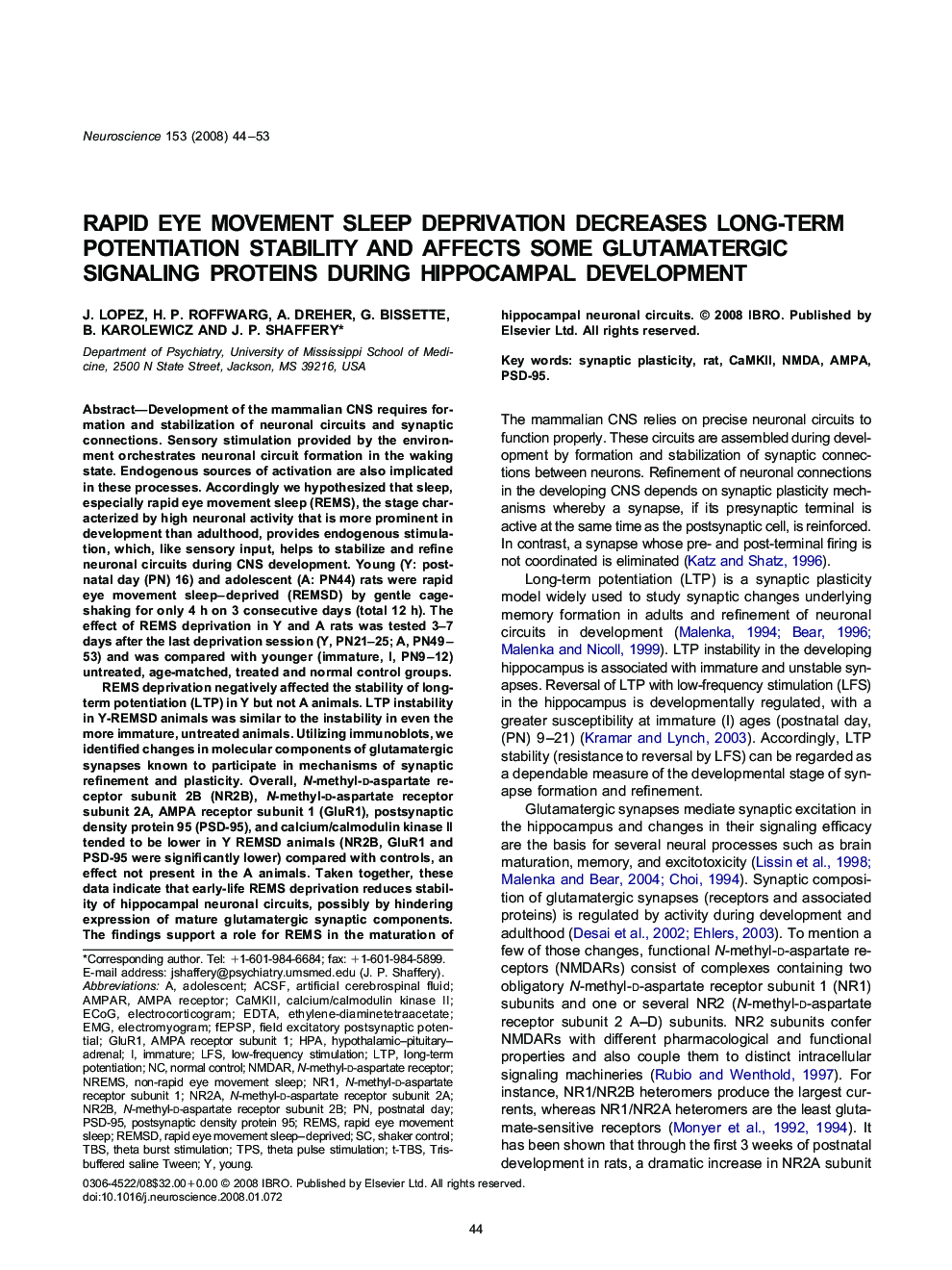| کد مقاله | کد نشریه | سال انتشار | مقاله انگلیسی | نسخه تمام متن |
|---|---|---|---|---|
| 4340613 | 1295805 | 2008 | 10 صفحه PDF | دانلود رایگان |

Development of the mammalian CNS requires formation and stabilization of neuronal circuits and synaptic connections. Sensory stimulation provided by the environment orchestrates neuronal circuit formation in the waking state. Endogenous sources of activation are also implicated in these processes. Accordingly we hypothesized that sleep, especially rapid eye movement sleep (REMS), the stage characterized by high neuronal activity that is more prominent in development than adulthood, provides endogenous stimulation, which, like sensory input, helps to stabilize and refine neuronal circuits during CNS development. Young (Y: postnatal day (PN) 16) and adolescent (A: PN44) rats were rapid eye movement sleep–deprived (REMSD) by gentle cage-shaking for only 4 h on 3 consecutive days (total 12 h). The effect of REMS deprivation in Y and A rats was tested 3–7 days after the last deprivation session (Y, PN21–25; A, PN49–53) and was compared with younger (immature, I, PN9–12) untreated, age-matched, treated and normal control groups.REMS deprivation negatively affected the stability of long-term potentiation (LTP) in Y but not A animals. LTP instability in Y-REMSD animals was similar to the instability in even the more immature, untreated animals. Utilizing immunoblots, we identified changes in molecular components of glutamatergic synapses known to participate in mechanisms of synaptic refinement and plasticity. Overall, N-methyl-d-aspartate receptor subunit 2B (NR2B), N-methyl-d-aspartate receptor subunit 2A, AMPA receptor subunit 1 (GluR1), postsynaptic density protein 95 (PSD-95), and calcium/calmodulin kinase II tended to be lower in Y REMSD animals (NR2B, GluR1 and PSD-95 were significantly lower) compared with controls, an effect not present in the A animals. Taken together, these data indicate that early-life REMS deprivation reduces stability of hippocampal neuronal circuits, possibly by hindering expression of mature glutamatergic synaptic components. The findings support a role for REMS in the maturation of hippocampal neuronal circuits.
Journal: Neuroscience - Volume 153, Issue 1, 22 April 2008, Pages 44–53